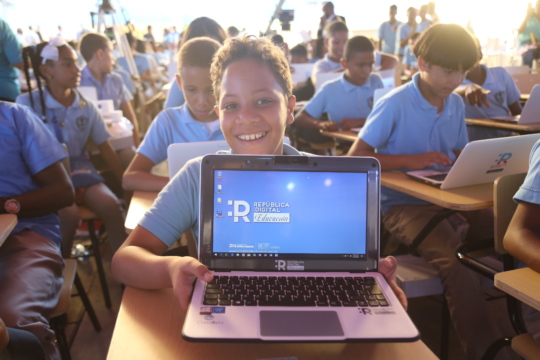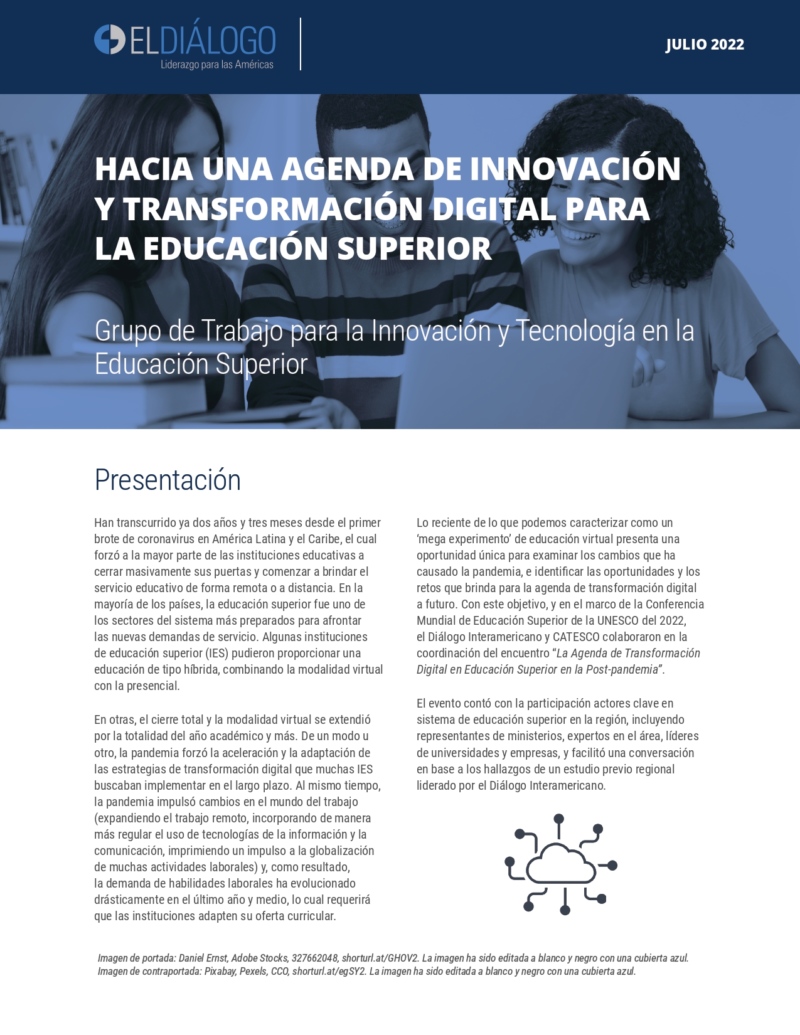
Can Latin America Find a Faster Path to Digital Government?
A Latin America Advisor Q&A featuring viewpoints on the progress and challenges of digital government in Latin America and the Caribbean.
This post is also available in: Español
Higher education was one of the best equipped subsectors to face the new demands of remote teaching and learning during the crisis. In one way or another, the pandemic forced the acceleration and adaptation of the digital transformation strategies that Latin American higher education institutions (HEIs) had sought to implement in the long term. The demand for alternative skills and competencies in the new job market also evolved in the last year and a half, which will continue to require institutions to adapt their curricular offerings.
In this context, it is critical to examine the impact of the pandemic in order to identify the opportunities and challenges it provides for the future agenda for digital transformation. With this objective, and under the umbrella of the UNESCO’s World Conference on Higher Education in 2022, the Inter-American Dialogue and CATESCO hosted the meeting "The Agenda for Digital Transformation in Higher Education in the Post-Pandemic."
Based on this discussion and a regional study led by the Inter-American Dialogue, this report highlights the main opportunities and barriers Latin American HEIs face in the post-pandemic. Ultimately, the report draws a roadmap for the working group, with four priority areas on which to focus the digital transformation efforts for higher education in Latin America.
KEY AREAS AND ACTIONS FOR THE FUTURE AGENDA:
A Latin America Advisor Q&A featuring viewpoints on the progress and challenges of digital government in Latin America and the Caribbean.
On September 9, 10, and 11, 2020, over 6,000 participants from around the world convened virtually for the 24th Annual CAF Conference to discuss the most pressing issues facing the Western Hemisphere.
On December 2, 2020 the Inter-American Dialogue partnered with Luminate to host the webinar “Democracy in a Post-Pandemic Latin America.” Panelists discussed the current state of democratic institutions in the region, the role of disinformation, as well as the findings of Luminate’s new public opinion research on shifting perceptions on democracy during the pandemic.
 Daniel Ernst / Adobe Stocks, 327662048/
tinyurl.com/bdhs7xkf
Daniel Ernst / Adobe Stocks, 327662048/
tinyurl.com/bdhs7xkf
 Video
Video
 Video
Video